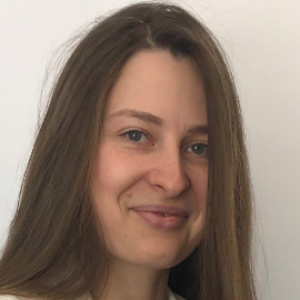Title : Brain structure and neurocognitive performance in very early premanifest Huntington’s Disease
Abstract:
During the premanifest stages of HD (pre-HD), pre-HD individuals show significant neurodegenerative anomalies. In pre-HD, structural brain changes are present many years prior to disease onset, and are known to contribute to motor, cognitive, and psychiatric impairments. What yet remains unknown, is how early in the disease process, structural brain changes can be detected. In this study, we recruited pre-HD individuals (n = 15; M = 37.33; SD = 10.82) who were very far from the predicted disease onset (~26 years) and n = 15 age- and gender-matched controls (M = 35.60; SD = 10.69) to examine whether there are any structural brain alterations in the pre-HD sample, relative to controls. Both groups underwent structural magnetic resonance imaging (MRI) and completed a comprehensive battery of neurocognitive and psychosocial measures, including the Cognitive Reserve Index Questionnaire (CRIq), the International Physical Activity Questionnaire Long (IPAQ-L), the Pittsburgh Sleep Quality Index (PSQI), the WHO Quality of Life-BREF Questionnaire (WHOQOL-BREF), the Beck Depression Inventory- II (BDI-II), the Social Support Questionnaire (SSQ), as well as the Symbol Digit Modalities Test (SDMT) and the Montreal Cognitive Assessment Test (MoCA). An independent-t test revealed that pre-HD individuals exhibited statistically significant worsened cognitive reserve (pre-HD, M = 96.33, SD = 8.56; controls, M = 104.33, SD = 11.86), poorer processing speed performance (M = 55.20, SD = 12.60; controls, M = 64.47, SD = 11.07), as well as impaired cognitive function (pre-HD, M = 26.47, SD = 2.53; controls, M = 28.13, SD = 1.46) in comparison to controls. We performed whole-brain voxelwise statistical comparison of grey matter volume data between pre-HD individuals and controls, and found no significant differences in grey matter volume (controlled for TIV) between the groups. Further, and relative to controls, a region-of-interest analysis did not reveal any significant changes in the bilateral caudate and putamen. These data indicate that cognitive deterioration in the pre-HD sample is observed as early as 26 years prior to clinical diagnosis despite no evidence of brain atrophy. We suggest that other neurochemical and/or behavioural processes drive the progressive worsening of cognitive performance in pre-HD.




